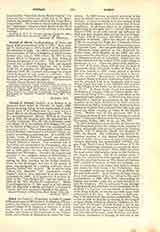

Conrad of Utrecht, BISHOP, b. in Swabia at an unknown date; killed at Utrecht, April 14, 1099. Before becoming bishop he was chamberlain of Archbishop Anno II of Cologne and, for a time, tutor of Prince Henry, the future Emperor Henry IV. When the excommunicated Bishop William of Utrecht died in 1076, the emperor gave the episcopal See of Utrecht to Conrad, who, like his predecessor, sided with Henry IV in his conflicts with Gregory VII, and at the Synod of Brixen in 1080 even condemned the pope as a heretic. The contemporary annalist, Lambert of Hersfeld, calls Conrad a schismatic bishop, unworthy of holding an episcopal see. In a battle with Robert, Count of Flanders, Conrad was defeated, afterwards taken captive and compelled to yield part of South Holland to Robert. This territorial loss of the bishop was compensated by the emperor, who, in 1077, gave him the district of Stavoren in Friesland, and in 1086 added the two other Frisian districts, Ostergau and Westergau. Conrad is the founder and architect of the collegiate church of Notre-Dame at Utrecht. He was assassinated, shortly after completing the Holy Sacrifice, by his Frisian architect whom he had discharged, and who, in the opinion of some, was instigated by a certain nobleman whose domains Conrad held unjustly. He is said to have written the discourse “Pro Imperatore contra Papam”, and to have delivered it at the Synod of Gerstungen in 1085. It is inserted by Aventinus (d. 1534) in his “Vita Henrici IV” and by Goldast (d. 1606) in his “Pro Henrico IV im eratore”. Hefele (Conciliengeschichte, V, 180, note) is of the opinion that the discourse is falsely attributed to Conrad of Utrecht, and that Aventinus himself is the author.
MICHAEL OTT

